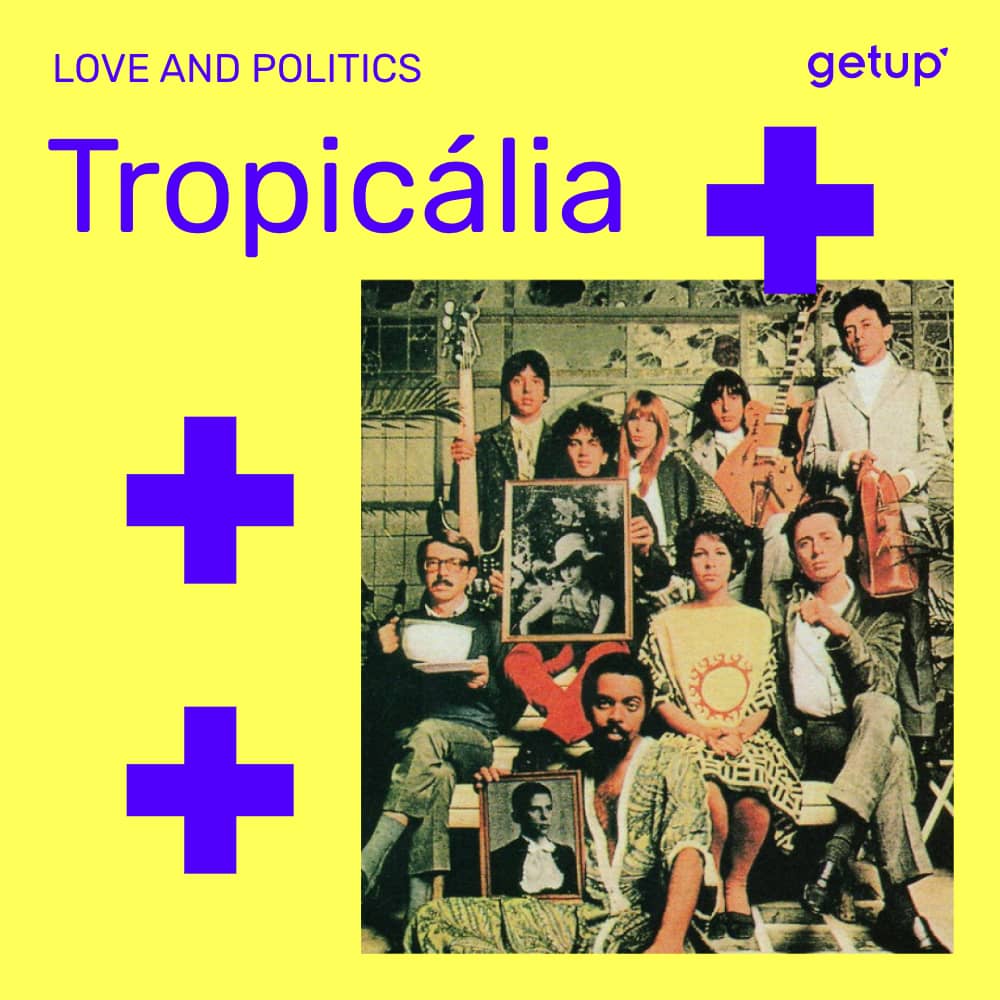When he appeared on stage at the 3rd MPB Festival for TV Record in 1967 to perform “Alegria Alegria” accompanied by the electric guitars of the Argentinian Beat Boys, the singer Caetano Veloso, much like Dylan in Newport two years earlier, had decided to switch eras. Closely followed by his Bahian alter ego Gilberto Gil and his song “Domingo no Parque” he claimed the right to the modernity embodied in psychedelic pop without losing the poetic soul of the tropics. This was the starting point of a movement inspired by Oswaldo de Andrade’s anthropophagic manifesto which took the name ‘Tropicália’ in reference to an exhibition by the visual artist Hélio Oiticica, and which was to change Brazilian society forever.
Full of hope for Brazil’s future, whose aesthetic and political conservatism it castigated, Tropicália is both protesting and avant-garde. The way it worked was through the assimilation of European cultures coupled with the preservation of Brazil’s own different cultural heritages. Diversions, allegories, mixings, and pastiche were all means used to produce a new form of authentically Brazilian expression, both rural and urban, to which young people could aspire. The opposition between Culture with a capital C and pop culture, or even bad taste, was over – sophistication and exoticism now went hand in hand with a continued search for artistic expression.
From 1967 to July 1969, when the two Bahians went into exile in London, the Tropicália movement was present in all the arts: theatre, cinema (with the experimental works of Glauber Raucha and Cacá Diegues), literature, fine art; even in fashion which began to promote national textile and craft production, as well as on television in the person of Chacrinha, an extravagant host who became an icon for a whole generation. On the musical side, many artists joined Gil and Caetano: Gal Costa, Tom Zé, Os Mutantes, Nara Leão, the poets Torquato Neto and Capinan, and the arrangers Rogério Duprat, Júlio Medaglia and Damiano Cozzella. Together they wrote the manifesto of the movement, Tropicália or Panis et Circencis, an orchestral and architectural masterpiece that would become a milestone in musical history, and whose 25th anniversary was celebrated with a very worthy sequel: Tropicaliá 2.
‘The most important thing that Tropicália has left us with is a taste for diversity,’ Gilberto Gil summed up in 2017. Even if the movement was short-lived, the Tropicalist spirit did not die with Gil and Caetano’s departure for England, and their inability to revive it as it was when they returned to Brazil in 1972. Numerous bands and musical waves continued to make their mark in the country and gave birth to Brazilian rock in the 1980s. In the USA today, artists such as Beck Hansen and Devendra Banhart lay claim to a Tropicalist sound, while in the UK The Bees have revived Os Mutantes which, with or without their singer Rita Lee, is still a hit with British audiences.





.jpg)


